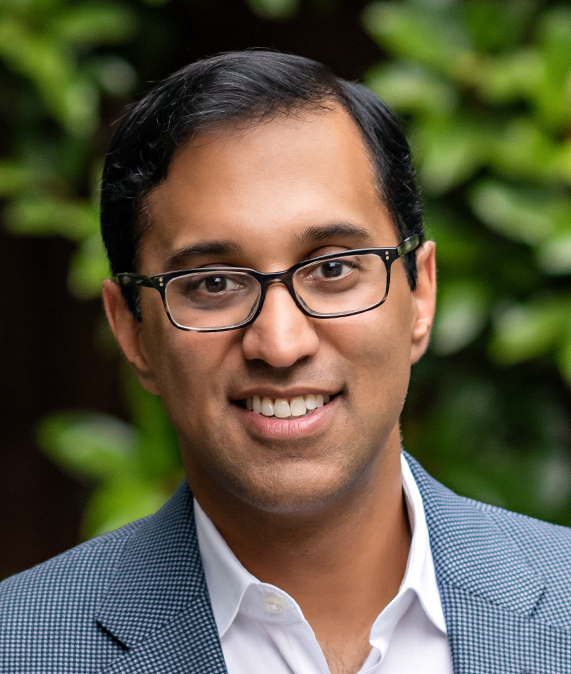
Steward Health Care is a bit of an anomaly in the healthcare world of North Texas. The private health system is physician-owned, embraces value-based care, and includes hospitals all around the world, including Malta and Colombia. And even though the system is based in downtown Dallas (above the Salt Bae Steakhouse), it doesn’t have any hospitals here.
D CEO Healthcare sat down with the system’s North American President, Dr. Sanjay Shetty, to talk about his path to leadership, the system’s embrace of value-based care, and what makes Steward different.
D CEO: How did you find your way to physician leadership?
Dr. Sanjay Shetty: “When I was in college, I was trying to make that decision between healthcare and business, and took it right up until the day I had to decide between med school and a job in consulting and ended up deciding on medical school. But the bug was there in terms of wanting to do something. I got pretty involved as a resident in radiology in the economics of radiology, and that’s what prompted me to even seek additional school. If doctors are going to control medicine and control healthcare, they have to understand what’s going on behind the closed door.”
D CEO: What does it mean for a system to lean into value-based care?
SS: “One of the things that make us different, even compared to those that are here in Dallas, is we’ve embraced the idea of value-based care. It’s something that was important in Massachusetts [where Steward was founded] because of what was then Romney Care. People had access, but no one knew how to control costs. So we entered into value-based deals with commercial contracts. When you look at the cost of taking care of a patient, it’s quite high because nobody’s minding the ship, so they bounce around through different types of care. Coordinated care not only reduces cost but, more importantly, could improve quality if we give them the preventative care that they need.”
D CEO: How does being physician-led impact operations?
SS: “That informs everything that we do. Every decision that’s happening within the business has the patient in mind. The first question is, how does this impact the patient? At any given time, [in a value-based contract] you’re focusing on them not just when they’re in the hospital or the office, but 365 days a year. Are you thinking about them? Are they on the radar? Are you addressing large gaps in quality? Are you addressing the folks who are back and forth into the hospital quite frequently?”
D CEO: What have you learned from being in the value-based care business?
SS: “We’ve been at it now for 11 years, so we have been down this journey where we build a lot of the infrastructure and understand how these things work. We know where the traps are. If we are going to enter into an arrangement with another party, we’ve seen all the ways that could go wrong. We were able to anticipate that and educate the counterpart on what matters and what’s going to drive value and sustainability. Even though you may think you have the latest and greatest, what you are building may be too complicated. We think of ourselves as a system that happens to have hospitals, and the hospitals serve an important role for a subset of patients.”
D CEO: How do Steward’s values impact its discussions with payers and employers?
SS: “The underlying mentality and willingness to embrace risk certainly sets us apart. It gets a seat at the table to engage in that conversation. The different payers are running at different rates. Even though many will talk about embracing value, they haven’t quite caught up to where they may need to be. I think the employer base also has to still get their head around and understand the need for value, about the way it gets operationalized through their fully insured or self-insured plan, and what that means to them is still something that a lot of employers are still working through. However, it definitely changes the conversation when we can get over that hurdle right away.”
D CEO: How does having a hospital system in different countries impact operations?
SS: “The underlying premise is that this idea of value-based care is an important problem in the world. We built an infrastructure and an understanding, and a knowledge base. That makes sense in the United States; it might even make more sense in a country like Malta, where it’s a single-payer system responsible for the population from the cradle to the grave. Malta is our first foray, and in Colombia, there is an embrace of that holistic, integrated, sustainable model. That international side of the house is going to continue to grow because that model makes just as much sense elsewhere as in the U.S.”
D CEO: “Steward has several hospitals in rural settings at a time when many are closing. How are you supporting them?”
SS: “They’re all really strong community facilities. What we recognize in all of those communities is they want to get their care close to home. It’s better for their families and better for the community at large to have a strong employer, a strong contributor to the tax base, and a high-quality facility that everybody would want to go to. If everybody in West Texas had to drive to Dallas to get their care, they wouldn’t get their care. For us, strengthening those facilities is crucial. When you have patients dealing with cancer care and repeated needs for radiation oncology, repeated needs for surgery, if they had to travel far, it would be disruptive for them and their entire family. We focus a lot on those community hospitals, and we think of each as an opportunity for excellence.”
D CEO: What did you learn about the system during the pandemic?
SS: “COVID exposed our strengths. It was an unrelenting commitment to doing right by the patient from the get-go. That informed everything we did during the COVID pandemic and what we continue to do as we continue to care for patients with COVID. It redoubled our understanding of how amazing our employees are and the work that they do. I toured the facilities in the midst of the pandemic, in Houston and all over the country and, and I saw how our nurses made sure that every patient was still a person and not just a set of numbers. Seeing that, in the worst of times, makes you realize what’s happening in the best of times and how much amazing work they’re doing every day. It redoubled our emphasis on building our culture and retaining the great employees and treating them well for what they do.”




